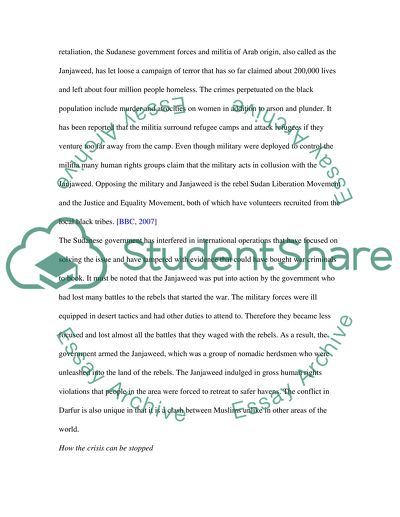Cite this document
(The Crisis in Darfur Case Study Example | Topics and Well Written Essays - 1750 words, n.d.)
The Crisis in Darfur Case Study Example | Topics and Well Written Essays - 1750 words. Retrieved from https://studentshare.org/military/1541059-darfar-african-crisis-politics-and-aid
The Crisis in Darfur Case Study Example | Topics and Well Written Essays - 1750 words. Retrieved from https://studentshare.org/military/1541059-darfar-african-crisis-politics-and-aid
(The Crisis in Darfur Case Study Example | Topics and Well Written Essays - 1750 Words)
The Crisis in Darfur Case Study Example | Topics and Well Written Essays - 1750 Words. https://studentshare.org/military/1541059-darfar-african-crisis-politics-and-aid.
The Crisis in Darfur Case Study Example | Topics and Well Written Essays - 1750 Words. https://studentshare.org/military/1541059-darfar-african-crisis-politics-and-aid.
“The Crisis in Darfur Case Study Example | Topics and Well Written Essays - 1750 Words”. https://studentshare.org/military/1541059-darfar-african-crisis-politics-and-aid.


